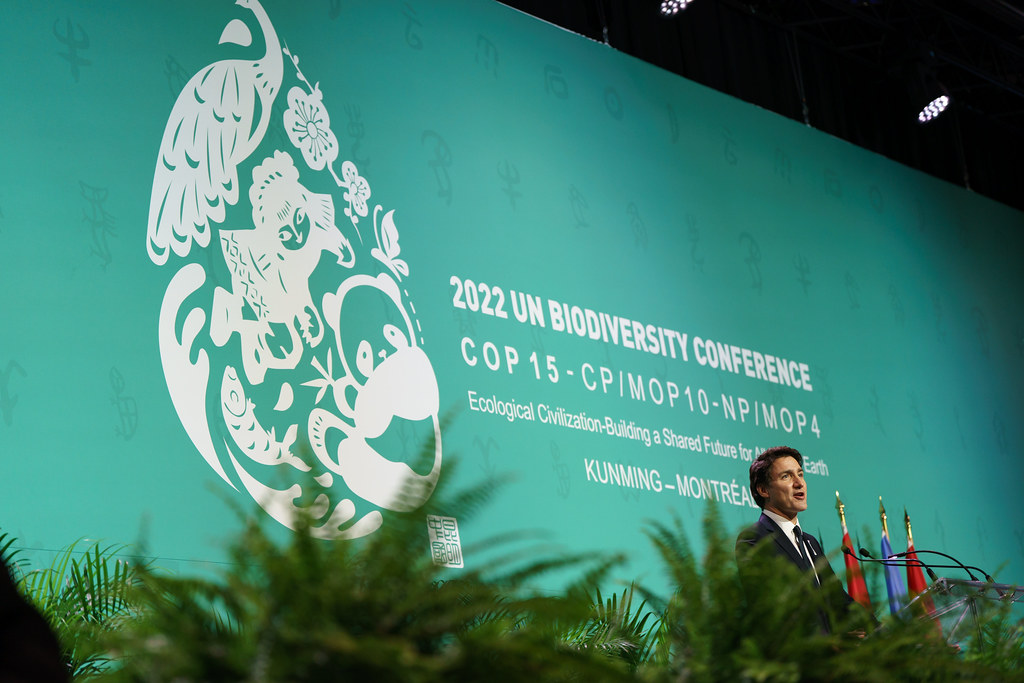
Just hours after being declared Prime Minister on March 14, Mark Carney axed the consumer carbon tax. This is yet another step in the death agony of liberal environmentalism. This trend claimed to be able to reconcile environmental protection and capitalist interests, but has proven to be nothing more than a deceitful attempt to give a progressive veneer to big business and their governments.
For years, the federal Liberals presented themselves as champions of a “realistic” environmentalism, capable of protecting both the planet and capitalist profits. They used the carbon tax to look like they were taking action, while shifting part of the cost of the problem onto the shoulders of the working class.
Now Mark Carney is not only abandoning the carbon tax, but also promising to use emergency powers to speed up pipeline construction. This decision perfectly illustrates the real priorities of the Canadian ruling class: when the needs of Capital demand it, all impediments to profit must be removed.
At the same time, Carney kicked Steven Guilbeault from his post as Minister of the Environment—a highly symbolic move. The environmental activist turned minister embodied the illusions of green liberalism. His ouster from the post sends a clear message: there’s no longer any need to keep up appearances.
This about-face comes as no surprise. Liberals have always been concerned not with protecting the environment, but with preserving the capitalist system. Now that liberalism is being rejected, they are unashamedly abandoning any pretenses.
In the same vein, in January we saw Canada’s five largest banks leave the Net-Zero Banking Alliance. This initiative, launched in 2021 and led by Mark Carney himself, claimed to coordinate “activities” by banks on climate. Following Trump’s election, one US bank after another left the alliance, and their Canadian counterparts quickly followed.
This reversal is not limited to Canada. Lately, many banks and major corporations around the world are reneging on the promises they made as part of the Paris Accords in 2015. They are postponing their environmental targets, retracting their climate commitments or abandoning them altogether.
While the IPCC estimates that global emissions need to be cut by 43 per cent by the end of the decade to stay within global warming limits, major companies—including Unilever, Bank of America and Shell—abandoned or did not bother reaching their emission reduction targets last year.
Walmart, last December, removed a section from its website where it stated that “If we don’t take stronger action now [to combat the environmental crisis], the damage will only get worse and the consequences will be disastrous for this and future generations.” Last year, HSBC excluded the bank’s head of sustainability—a climate scientist by training—from the group’s executive committee, then replaced him with a banker. These anecdotes demonstrate to everyone what communists have been saying for a long time: under capitalism, the pursuit of profit takes precedence over all other considerations, including the health of our planet.
With the acceleration of the economic crisis and the intensification of the trade war, the objective for the capitalists is clear: all obstacles to profit must be removed. Environmental constraints are seen as brakes on competitiveness and must be eliminated.
As long as the means of production remain in the hands of capitalists, there can be no real protection of the environment. This means there is only one solution to save the planet: to wrest businesses out of the hands of capitalists and place them under the democratic control of workers. Only collective, rationally-planned management of the economy can bring about a genuine green transition, putting resources at the service of the needs of the majority rather than the profit of a few.

